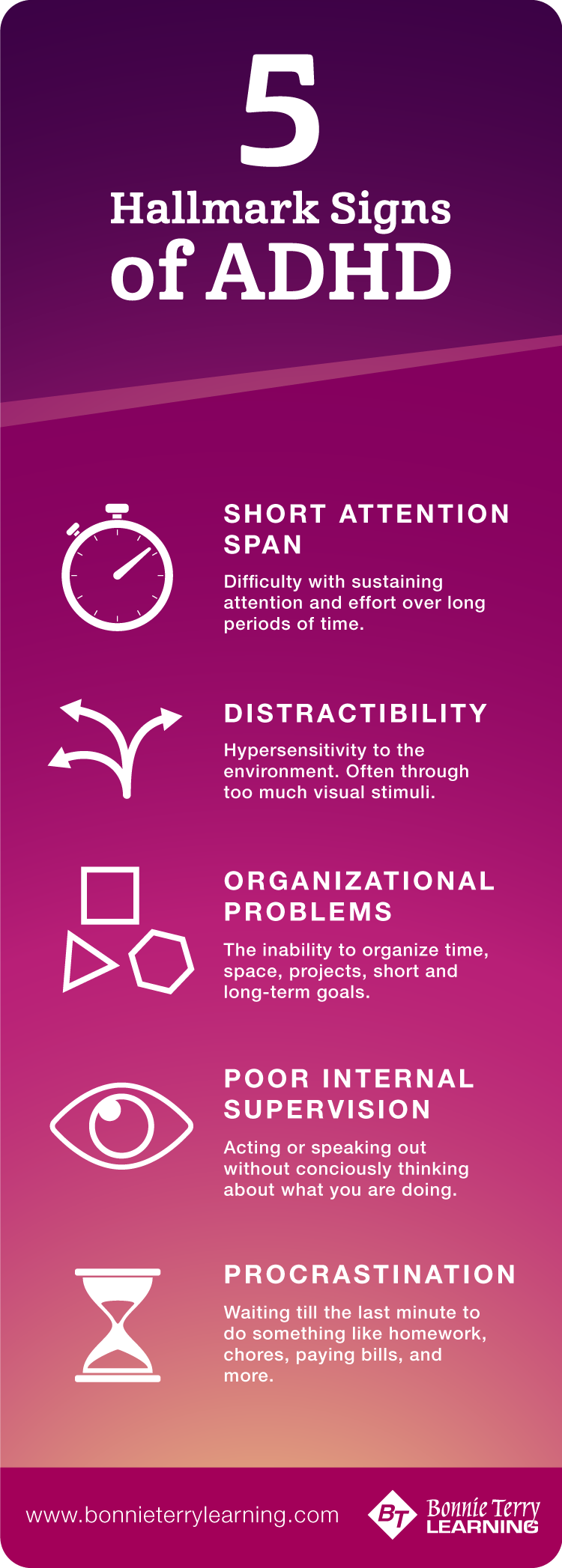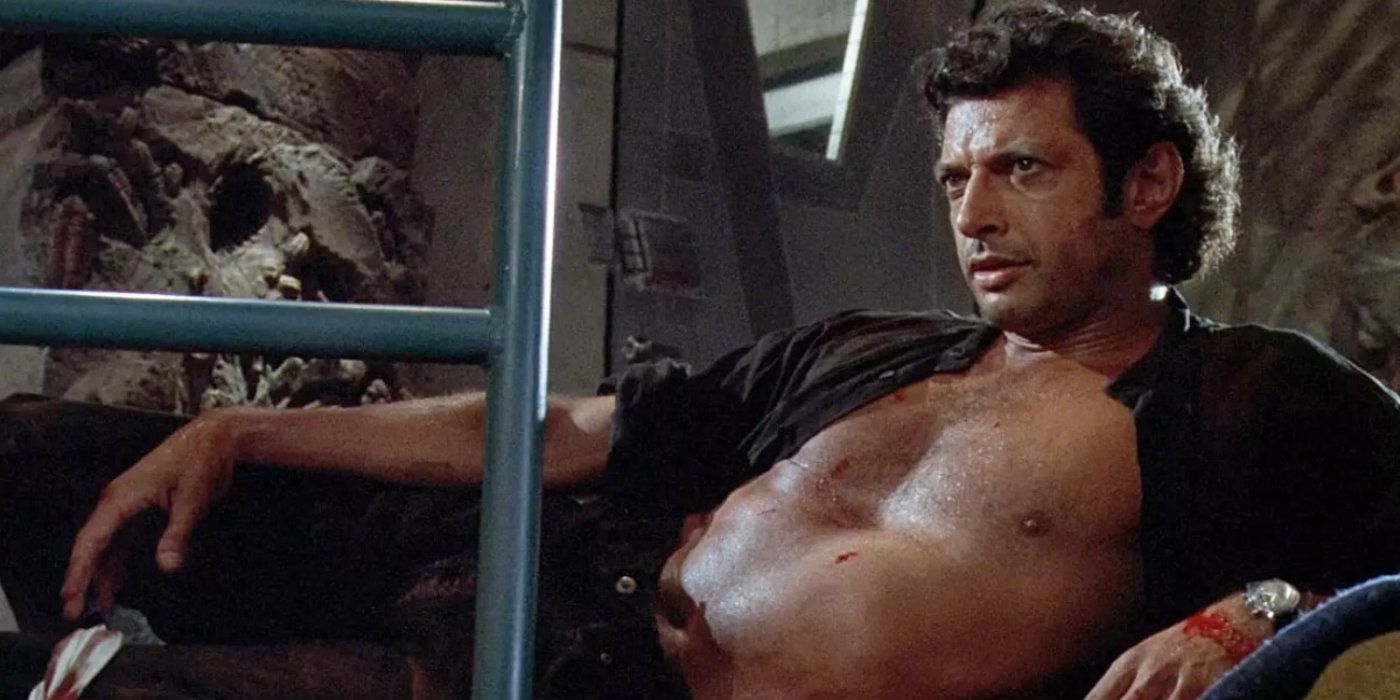Difficulties Focusing? 8 Subtle Signs Of Adult ADHD

Table of Contents
Persistent Difficulty Prioritizing and Organizing
Overwhelmed by Seemingly Simple Tasks
Adults with ADHD often struggle with task initiation and completion. This isn't just about being disorganized; it's a core symptom stemming from difficulties with executive function – the brain's ability to plan, organize, and execute tasks.
- Procrastination: Putting off tasks, even those you want to complete, is common.
- Feeling easily overwhelmed by to-do lists: The sheer volume of tasks can feel insurmountable.
- Difficulty breaking down large tasks into smaller, manageable steps: Large projects seem too daunting to start.
- Switching between tasks frequently without completion: Starting many tasks but finishing few.
This differs from simple disorganization because it's rooted in a neurological challenge, not just a lack of willpower. Practical strategies for managing this include breaking down large tasks into smaller, more achievable steps, using visual aids like checklists and planners, and prioritizing tasks based on urgency and importance. Techniques like the Pomodoro Technique (working in focused bursts with short breaks) can also be helpful for improving focus and concentration.
Problems with Time Management and Punctuality
Chronic Lateness and Missed Deadlines
Difficulty estimating time needed for tasks is common in adults with ADHD. This isn't simply a matter of poor time management skills; it's often a consequence of impaired executive functioning.
- Frequently running late for appointments: Consistently missing deadlines, leading to stress and frustration.
- Missing deadlines at work or home: Impacting work performance and personal responsibilities.
- Struggling to manage a daily schedule: Finding it challenging to plan and stick to a routine.
- Feeling constantly rushed: A pervasive sense of urgency and pressure.
The neurological basis for this difficulty lies in the brain's ability to accurately predict time and sequence actions. Strategies to help include time-blocking (scheduling specific time slots for tasks), using timers and alarms, and practicing mindfulness to improve awareness of time passing.
Restlessness and an Inability to Relax
Constant Fidgeting and Inner Turmoil
Many adults with ADHD experience a constant sense of restlessness and an inability to relax, even after engaging in physical activity. This isn't simply anxiety; it's a manifestation of the hyperactive aspect of ADHD.
- Feeling restless even after physical activity: The need for constant movement persists.
- Difficulty unwinding after work: Struggling to transition from a busy workday to relaxation.
- An internal sense of urgency or agitation: A feeling of being "wired" or unable to settle down.
- Struggling to find moments of peace: Constant mental stimulation and a lack of calm.
This differs from general anxiety in that it's often present even in relaxed environments. Mindfulness techniques, yoga, and regular exercise can help manage this restlessness, promoting relaxation and reducing the internal sense of urgency.
Impulsivity in Speech and Actions
Speaking Before Thinking and Making Rash Decisions
Impulsivity is a hallmark of ADHD, impacting various aspects of life. This involves acting on sudden urges without considering potential consequences.
- Interrupting conversations frequently: Speaking out of turn, often unintentionally.
- Acting on sudden urges without considering consequences: Making impulsive purchases, saying things they regret.
- Impulsive spending habits: Financial difficulties due to uncontrolled spending.
- Difficulty controlling emotional reactions: Overreacting to minor frustrations.
This impulsivity can strain relationships and have professional implications. Techniques like mindfulness and cognitive behavioral therapy (CBT) can help develop strategies to pause before acting, consider consequences, and regulate impulsive behaviors.
Emotional Dysregulation and Mood Swings
Experiencing Intense Emotional Responses
Individuals with ADHD often experience more intense and unpredictable emotional responses than those without the condition.
- Frequent mood swings: Rapid shifts between different emotional states.
- Difficulty managing frustration or anger: Experiencing outbursts of anger or frustration disproportionate to the situation.
- Heightened sensitivity to criticism: Taking constructive criticism personally or reacting defensively.
- Feeling easily overwhelmed by emotions: Struggling to cope with intense emotions.
This emotional dysregulation is linked to the executive function deficits often seen in ADHD, affecting the ability to regulate and process emotions effectively. Therapy, particularly CBT and Dialectical Behavior Therapy (DBT), can teach coping mechanisms for managing intense emotions.
Forgetfulness and Difficulty Recalling Information
Misplacing Items and Forgetting Appointments
This isn't simple absentmindedness; it stems from impaired working memory and executive function.
- Frequently misplacing keys, phone, or other belongings: Losing items regularly despite making an effort to be organized.
- Forgetting appointments or commitments: Missing important meetings or events.
- Difficulty remembering details from conversations: Struggling to recall information even shortly after hearing it.
- Struggling to retain information: Difficulty learning and remembering new information.
These difficulties impact daily life significantly. Using organizational tools, memory aids, and setting reminders can mitigate these challenges.
Difficulty Sustaining Attention in Conversations and Tasks
Your Mind Wanders Easily During Conversations
Attention is easily diverted by external stimuli, leading to difficulties in focused tasks and conversations.
- Difficulty following conversations: Struggling to maintain focus during extended conversations.
- Zoning out during meetings or lectures: Losing track of what's being said.
- Easily distracted by external stimuli: Distracted by noises, movements, or other stimuli.
- Struggling to focus on reading or completing tasks: Difficulty concentrating on tasks requiring sustained attention.
This inattention impacts relationships, academic performance, and productivity. Mindfulness practices, minimizing distractions, and employing techniques like the Pomodoro Technique can help improve focus and attention span.
Low Self-Esteem and Feelings of Inadequacy
Internalizing Struggles with Focus and Organization
The challenges of ADHD often lead to negative self-perception and feelings of inadequacy.
- Feeling incompetent or inadequate: Self-criticism and feelings of not measuring up.
- Struggling with self-criticism: Harsh self-judgment and negative self-talk.
- Experiencing feelings of failure or disappointment: Frequent self-doubt and frustration.
- Difficulty maintaining motivation: Struggling to initiate and sustain motivation for tasks.
Untreated ADHD contributes to a negative self-image. Self-compassion, therapy, and celebrating small achievements can help build self-esteem and counteract these negative feelings.
Conclusion
Experiencing several of these subtle signs of adult ADHD doesn't automatically mean you have the condition. However, it's crucial to seek professional help for a proper diagnosis. If you're struggling with difficulties focusing and suspect you might have adult ADHD, consider scheduling an appointment with a healthcare professional or psychiatrist. Early diagnosis and treatment, which may include medication and therapy, can significantly improve your quality of life and help you manage your symptoms effectively. Don't let struggles with focus control your life – take the first step towards better understanding and managing your adult ADHD today.

Featured Posts
-
 The Ai Browser Battle An Interview With Perplexitys Ceo
Apr 29, 2025
The Ai Browser Battle An Interview With Perplexitys Ceo
Apr 29, 2025 -
 Bundesliga Misstoene Beim Lask Klagenfurt Droht Der Abstieg
Apr 29, 2025
Bundesliga Misstoene Beim Lask Klagenfurt Droht Der Abstieg
Apr 29, 2025 -
 Understanding The Treasury Market After April 8th
Apr 29, 2025
Understanding The Treasury Market After April 8th
Apr 29, 2025 -
 Was Jeff Goldblum Robbed Of An Oscar For His Role In The Fly
Apr 29, 2025
Was Jeff Goldblum Robbed Of An Oscar For His Role In The Fly
Apr 29, 2025 -
 154 Albums Later Willie Nelson Faces Family Conflict
Apr 29, 2025
154 Albums Later Willie Nelson Faces Family Conflict
Apr 29, 2025
Latest Posts
-
 Las Vegas Aces Training Camp A Forward Released
May 13, 2025
Las Vegas Aces Training Camp A Forward Released
May 13, 2025 -
 Oregon Tournament Deja Kellys Growing Leadership
May 13, 2025
Oregon Tournament Deja Kellys Growing Leadership
May 13, 2025 -
 Cp Music Productions A Unique Father Son Musical Experience
May 13, 2025
Cp Music Productions A Unique Father Son Musical Experience
May 13, 2025 -
 Wnbas Las Vegas Aces Make Roster Cut
May 13, 2025
Wnbas Las Vegas Aces Make Roster Cut
May 13, 2025 -
 Deja Kellys Leadership Oregon Tournament Preview
May 13, 2025
Deja Kellys Leadership Oregon Tournament Preview
May 13, 2025
